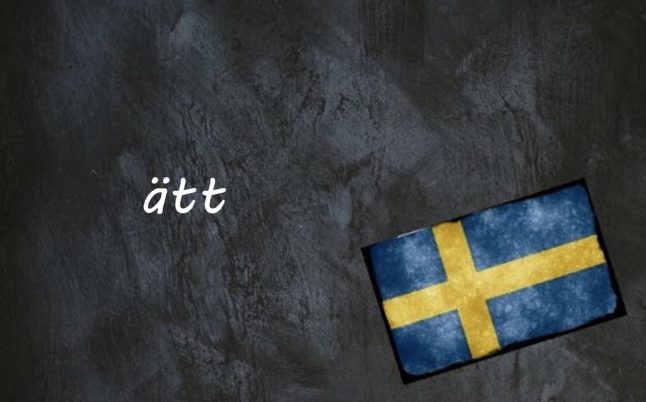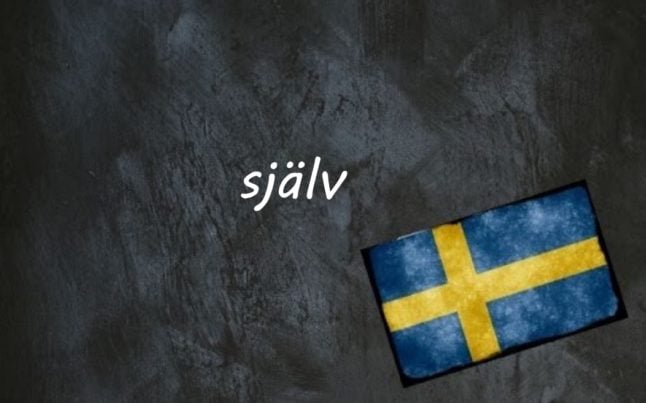Ätt may look similar to the Swedish word äta, to eat, but its meaning is unrelated. It originally comes from an Old Norse term ætt, which in turn comes from a Proto-Germanic word meaning something like possessions or property.
Ætt in Old Norse had a few different meanings, like an area or quarter (as in austrætt, ‘the east), a family or pedigree, and a generation.
In modern Swedish, it has two meanings. The first, most commonly used, meaning is similar to the Old Norse meaning – a lineage or royal house. Sweden’s royal family, for example, are ätten Bernadotte or the house of Bernadotte, descended from French-born Jean Baptiste Bernadotte, who was made heir to the Swedish throne in 1810. When the childless Karl XIII died in 1818, Bernadotte took over the Swedish throne, taking the name Karl XIV Johan.
- Don’t miss any of our Swedish words and expressions of the day by downloading The Local’s new app (available on Apple and Android) and then selecting the Swedish Word of the Day in your Notification options via the User button
A number of foreign royals are considered members of ätten Bernadotte, including Denmark’s Queen Margrethe II, whose mother was Princess Ingrid of Sweden (aunt to the Swedish king, Carl XVI Gustaf), as well as Margrethe’s sister, Anne-Marie of Greece.
Historically, the word ätt was similar to a clan, and it is now only really used when talking about royal houses or historically noble houses – normal people would use the word släkt to talk about their extended family instead.
Although Sweden no longer has official nobility, there are still a number of families considered to be adelsätter or noble families, also referred to in modern Swedish as uradel. The oldest of these which still exists is the Natt och Dag family, which can be traced all the way back to 1280, while Oxenstierna, Leijonhufvud and Hamilton are also well known adelsätter (although the last of these is not technically uradel, if we’re being pedantic).
In Norse society, you could technically be part of more than one ätt at once, although you’d most likely refer to yourself by whichever ätt was most prestigious. Usually, an ätt follows the male line, but it could follow the female line if this was more prestigious.
However, one area where ätt has hung on for normal people is in the word ättling, which describes a descendent, usually of a particular person a number of generations ago. This can be the ättling of some particular nobleman or woman, but it can also be used to describe the descendents of more normal Swedes.
The descendants of people who left Sweden generations ago to move to the US, for example, are commonly referred to in Swedish as svenskättlingar (descendants of Swedes), whereas the children of Swedes who left Sweden recently would more likely be referred to as utlandssvenskar (foreign Swedes).
The second use of ätt in Swedish is used when referring to groups of runes in the Elder Futhark, the Runic alphabet used between the 1st and 8th centuries.
This alphabet consisted of 24 letters – runes, technically – which were divided into three groups of eight. Essentially, these runes were seen as being part of the same clan or family, so they were also described as being part of the same ätt.
Example sentences
Den svenska kungaätten är ätten Bernadotte.
The Swedish royal house is House Bernadotte.
Jag är en svenskättling från USA. Det är därför jag heter Hansson i efternamn.
I am a descendant of Swedes, from the USA. That’s why my last name is Hansson.



 Please whitelist us to continue reading.
Please whitelist us to continue reading.
Member comments